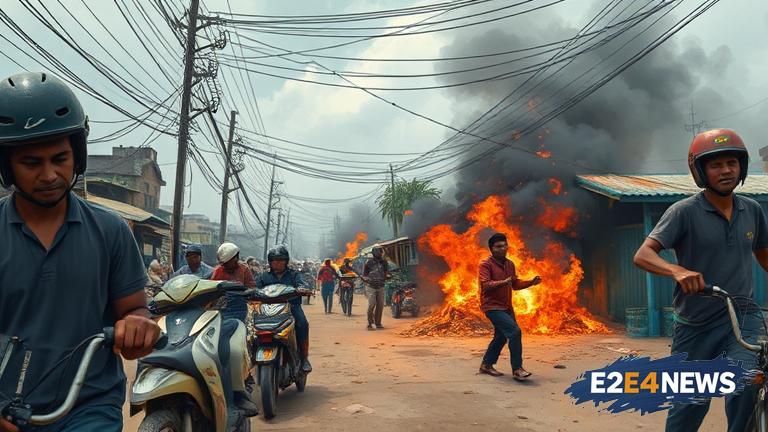The recent surge in border tensions between Cambodia and Thailand has led to a series of violent attacks on Cambodian migrant workers in Thailand. These attacks have sparked widespread concern and condemnation from human rights groups and governments alike. The situation has been exacerbated by long-standing disputes over border demarcations and resource management. In recent weeks, there have been reports of Cambodian workers being beaten, robbed, and intimidated by Thai nationals. Many of these workers have been forced to flee their homes and seek shelter in safe houses or return to Cambodia. The Thai government has been criticized for its handling of the situation, with many accusing it of failing to provide adequate protection for migrant workers. The Cambodian government has also been accused of not doing enough to support its citizens abroad. The attacks have had a significant impact on the livelihoods of Cambodian migrant workers, many of whom rely on remittances to support their families. The situation has also raised concerns about the broader implications for regional stability and economic cooperation. The Association of Southeast Asian Nations (ASEAN) has called for calm and restraint, urging both countries to resolve their differences through diplomatic means. The United States and other international partners have also weighed in, calling for an end to the violence and a return to peaceful dialogue. Despite these efforts, the situation remains volatile, with many fearing further escalation. The attacks on Cambodian migrant workers have also highlighted the need for greater protection and support for vulnerable populations. Many organizations are working to provide assistance to those affected, including food, shelter, and medical care. However, more needs to be done to address the root causes of the violence and to ensure that migrant workers are protected and respected. The situation is a reminder of the complex and often fraught relationships between countries in the region. It also underscores the need for greater cooperation and dialogue to resolve disputes and promote peaceful coexistence. As the situation continues to unfold, it is clear that a comprehensive and sustainable solution will require the efforts of all parties involved. This includes governments, civil society organizations, and individuals. Only through collective action can we hope to prevent further violence and promote a more just and equitable society for all. The international community must continue to monitor the situation closely and provide support to those affected. It is also essential to address the underlying issues that have contributed to the tensions, including poverty, inequality, and lack of access to education and job opportunities. By working together, we can build a more peaceful and prosperous future for all. The situation is a stark reminder of the challenges that migrant workers face, including exploitation, abuse, and lack of protection. It is essential that we prioritize their rights and well-being, and work to create a more just and equitable society for all. The attacks on Cambodian migrant workers in Thailand are a symptom of a broader problem, one that requires a comprehensive and sustained response. We must work to address the root causes of the violence, and to promote greater understanding, tolerance, and cooperation between nations. Only through collective action can we hope to create a more peaceful and prosperous future for all. The situation is a call to action, a reminder of the need for greater solidarity and cooperation in the face of adversity. We must work together to promote peace, justice, and human rights for all, regardless of nationality or background.
